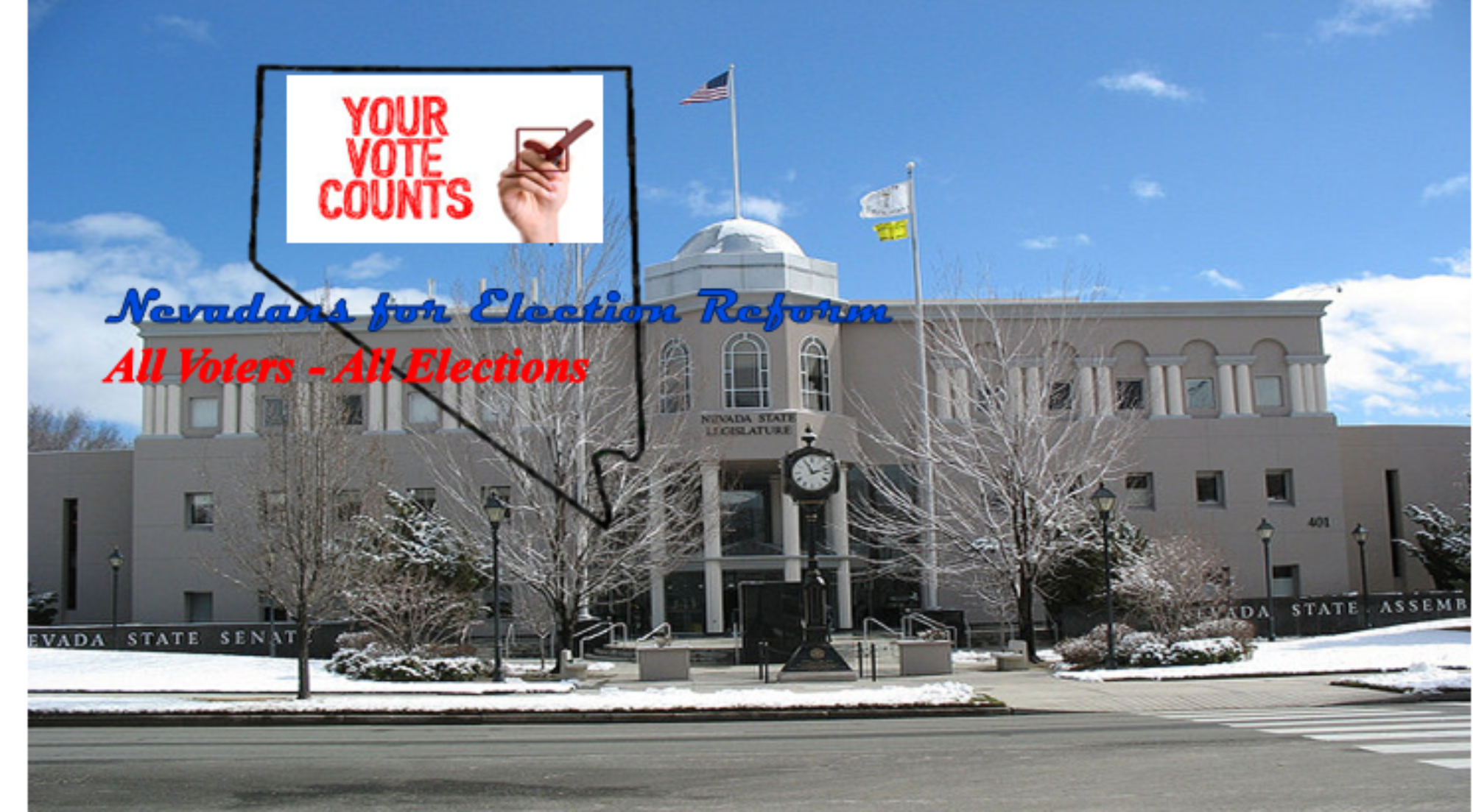Any time a major reform to the election process is proposed, a question of constitutionality is present. How does the proposed change impact on the individual’s right of association? The U.S. Supreme Court (SCOTUS) has addressed this on several occasions. The Nevada Election Modernization and Reform Act (NEMRA) should pass muster.
In each of the cases, the Court looked at the political party’s right of association compared to the government’s interest in regulating elections.
Three cases; Democratic Party of United States v. Wisconsin ex rel. La Follette, 450 U.S. 107 (1981), Tashjian v. Republican Party of Conn., 479 U.S. 208 (1986), and Eu v. San Francisco County Democratic Central Committee, 489 U.S. 214 (1989) compare the government’s attempt to regulate the internal operations of a political party. In each case SCOTUS ruled in favor of the party.
Three other cases show why the Court would look at NEMRA in a favorable light.
Timmons v. Twin Cities Area New Party, 520 U.S. 351 (1997), involved a minor party’s attempt to have the Minnesota law banning fusion tickets overturned. While the 8th Circuit Court found in favor of the party, SCOTUS reversed that decision, establishing a two-tiered balancing test for resolving conflicts between a political party’s right of association and the government’s right to regulate elections. In the opinion, Chief Justice Rehnquist wrote,
“(W)e weigh the character and magnitude of the burden the State’s rule imposes on those rights against the interests the State contends justify that burden, and consider the extent to which the State’s concerns make the burden necessary. (Citations omitted). Regulations imposing severe burdens on plaintiff’s rights must be narrowly tailored and advance a compelling state interest. Lesser burdens, however, trigger less exacting review, and a State’s ‘important regulatory interests’ will usually be enough.” Timmons, at p 358.
In other words, the imposition on the party must be severe if not directly related to the internal operations of the party. The Court further emphasized the state interest in protecting the integrity, fairness, and efficiency of ballots and reducing election and campaign-related disorder.
California Democratic Party v. Jones, 530 U.S. 567 (2000) started the ball rolling on creating a fair and just open primary. In this case the Supreme Court overturned California’s first attempt at a blanket primary finding that by allowing non-members of a political party select the nominees of a particular party, the first amendment right of association of the party was violated.
However, in the decision, Justice Scalia provided the remedy should the state want to resolve the constitutional issue.
“Respondents could protect them all by resorting to a nonpartisan blanket primary. . . This system has all the characteristics of the partisan blanket primary, save the constitutionally crucial one: Primary voters are not choosing a party’s nominee. Under a nonpartisan blanket primary, a State may ensure more choice, greater participation, increased ‘privacy’, and a sense of ‘fairness’ — all without severely burdening a political party’s First Amendment right of association.”
“Respondents’ legitimate state interests and petitioners’ First Amendment rights are not inherently incompatible. To the extent they are in this case, the State of California has made them so by forcing political parties to associate with those who do not share their beliefs.” Jones, at p .
In these words, Justice Scalia gave approval to the idea of the non-partisan blanket open primary. The state is not creating a system whereby voters are selecting the nominees of a party. Rather they are selecting the number of candidates to move forward to the general election regardless of political party.
Washington State Grange v Washington, 06–713 (2008) was the first test of Justice Scalia’s remarks. Plaintiff asserted Washington State’s blanket primary was facially unconstitutional. However the Court found the system does not provide for the nomination of a political party’s candidates or force political parties to associate with or endorse candidates. The Court further found that candidates’ party-preference designations as stated on the ballot will not confuse voters. On its face, the law did not severely burden respondents’ associational rights.
The Nevada Election Modernization and Reform Act conforms to these previous Supreme Court decisions. The right of association of political parties granted by the first amendment is not infringed. The right of the state to hold fair elections is preserved.
